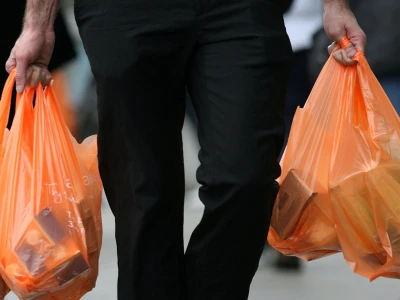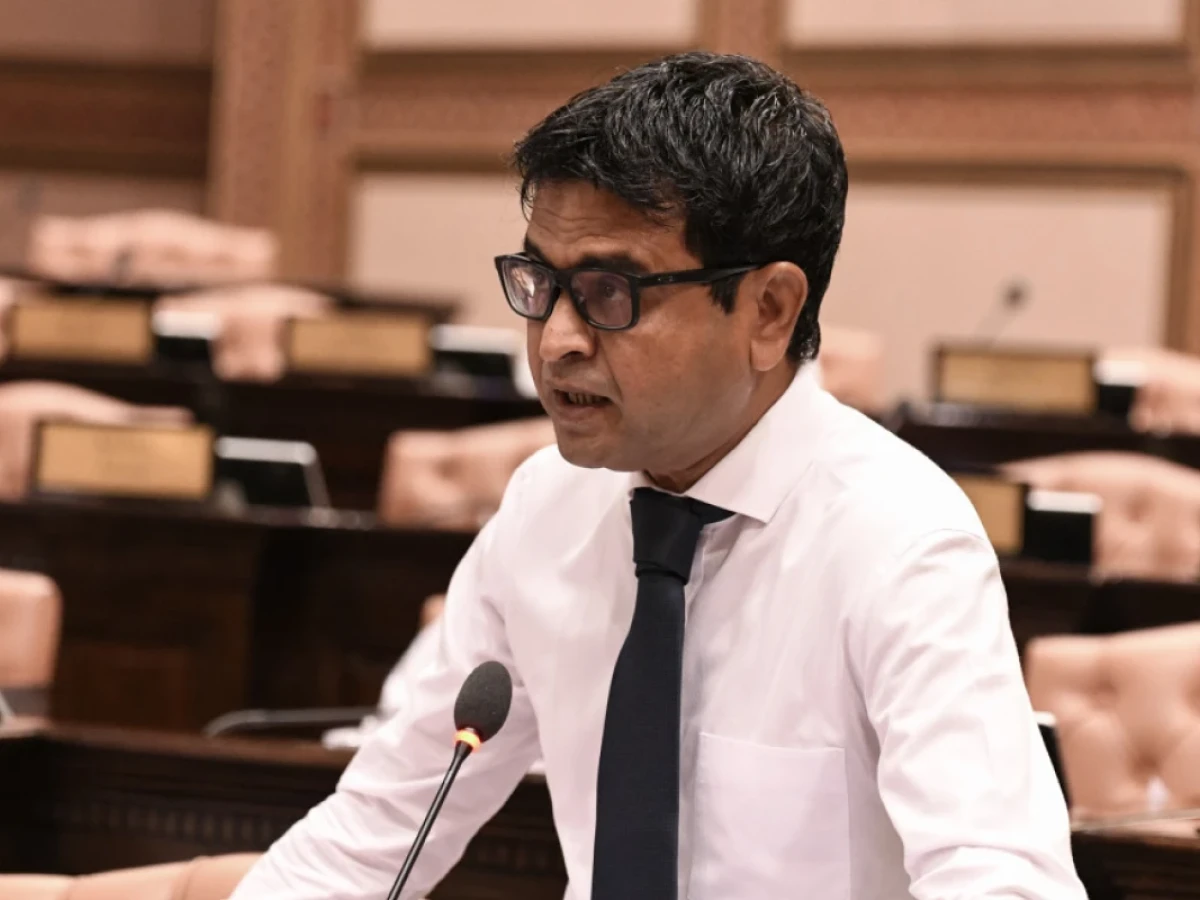
Plastic bag tax botched due to MIRA's interpretation, says Saleem
Saleem suggested that the law be introduced progressively, starting at a low figure like 50 Laari in the first year and then increasing the amount annually.
By
Mariyam Umna Ismail
Hoarafushi MP Ahmed Saleem said on Monday that the tax on plastic bags under the new Waste Management Act has inflated because of how the state's tax agency, MIRA has interpreted it.
The Waste Management Bill, which was passed by parliament in November, became a law and taxing plastic bags began from Tuesday.
With this change, there is now a tax on polythene bags, both while buying the bag itself and after basic shopping. With this, the price of bags sold by wholesale shops has gone up manifold and people are worried about the increase in the cost of waste disposal.
Saleem, who is also the chairman of the environment committee that reviewed the bill, defended the tax on plastic bags. Some of the examples he cited to reinforce his arguments include:
-
39 million more plastic items imported in 2018 as compared to 2017
-
According to 2018 and 2019 data, imports of plastic items had increased by 7 million
-
A decline of 149 million plastic products were noted in 2020 compared to 2019
-
This is an example of the success of the government's 2019 policy to reduce single-use plastic
-
In 2020, despite all these measures, 11.6 million plastic bags were imported into the country
Pointing out that the issue of plastic bags is a major problem faced by all countries in the world, Saleem said countries adopt two policies to address the issue:
-
Developing countries reduce and ban single-use plastic; Bangladesh took the lead in this, and now it is banned in 27 countries across the world
-
To set up a system of tax or fees on single-use plastic; when Ireland started doing so, now 24 countries followed suit
Saleem said the problem with the tax of MVR 2 on plastic bags in the country had arisen because it was not done right.
"For example, these bags cross five points by the time they arrive at the corner shops in our islands from the wholesale shops they are bought at in Male. If the MVR 2 we are charging per bag gets added at every point, the price of the bag becomes MVR 10 by the time it reaches our corner shops," he said.
Saleem doesn't believe that it is a problem to do with the law, but rather because of the way MIRA interpreted the law.
"MIRA had the choice of interpreting it in a way that is beneficial to the people, but have done otherwise, and I wish to ask them why this has happened today. MIRA has interpreted the law in a way that is hurting us," Saleem said.
As per the law has been interpreted, every bag in a bundle has the added cost of the tax amount MVR 2. While normally there are 100 bags in a bundle, at the rate of taxes, MVFR 200 has to be added to the price of the bag bundle.
The government has now proposed to amend the law to bring down the price of polythene bag bundles.
Referring to the amendment, Saleem said it was not the solution to the problem with the plastic bag prices. Pointing out that the law does not bar anyone from going and buying 50 or more bags wholesale, Saleem said that if the tax is waived, "there will be more people going through that route and the entire system may fail".
"One of the results that we have seen when we tax plastic bags in the world is that demand increases in the tax-free direction, and that is a fact. That's not my opinion. So we have been unable to agree on these points when we reviewed the law [when the bill was examined]," he said.
"In this situation we are asking the small corner shop owners to keep a lot of statistics, and make several exceptions at the same time. To be honest, this law has come to us as a copy of how it works in countries with some of the most civilised tax systems in the world."
Saleem said it was difficult to make small exceptions in an established. So, he proposed five things to address these issues:
-
Do not waive taxes unless the bags are being bought to pack raw fish or meats
-
Levy as much "uniform" tax as possible so that retail shops, hotels and cafes are not administratively burdened
-
Reduction in taxes on bags, e.g. 50 Laari added to the price in the first year, followed by changes in it once a year based on the country's economic situation
-
The law should decide how to deduct the fee charged by those registered with MIRA at the time of purchase of bags and the fees charged by them while selling the bags.
-
Creating awareness to reduce single-use plastic and showing alternatives
"The issue is that there are no alternatives in this. If we had been made more aware of it by making it easier for us to get the paper bag or biodegradable bags or paper bags that we shift to after leaving the plastic bag, we would have made this journey more smoothly," says Saleem, concluding his speech.
Related
Related
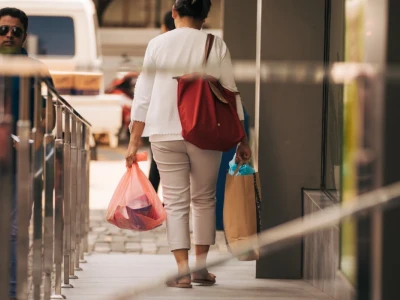
Plastic bag import ban delayed to Jan 2024, use ban to June 2024
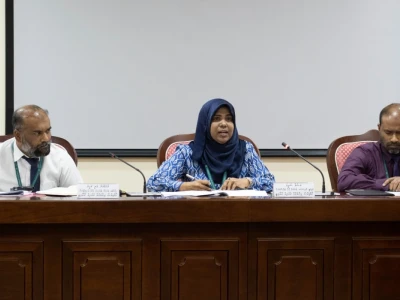
Double fee on bags can only be resolved via tax system, MIRA says
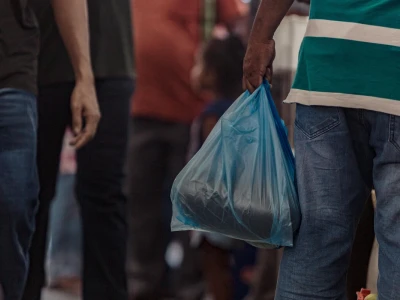
Explainer: MVR 2 plastic bag tax comes into effect on Apr 18
